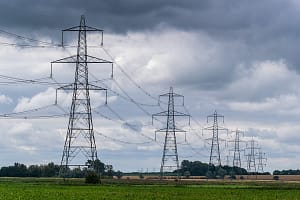Theresa May might have been handed an extension on Article 50 until 31 October, but there’s still no telling what any withdrawal agreement might mean.
Some industry experts are worried that being left out of EU’s Internal Energy Market could hit consumers and businesses in the pocket when it comes to their gas and electricity bills.
But now one leading specialist says that’s not actually the case, and they’re confident there will be no ‘abnormal spike’ in costs post Brexit.
The reassurance comes from energy insider Bill Hodder, a director with UK price comparison and tariff switching firm Love Energy Savings who’s analysed what he calls the ‘forward pricing curve’ the long-term cost to consumers set by suppliers.
Hodder said, “Just over 10% of gas and around five per cent of the electricity we use in the UK comes from the EU.
“And as we get closer to the Brexit deadline, the lock-in prices for three, four- or five-year energy contracts would be skyrocketing if energy suppliers thought anything drastic was going to change. But that simply isn’t happening. Looking forward, there doesn’t seem to be an abnormal spike in prices incoming.
“If suppliers were anticipating major problems, you’d expect the sell-forward price for a four- or five-year contract to be considerably higher to safeguard against any issues. But it’s not. That can be interpreted as evidence the energy suppliers don’t see Brexit as a huge problem that will have consequences for their customers.
“As recently as three or four months ago, three-year fixed prices were actually cheaper than one-year contracts, which says to us they’re not envisaging any change at all. From what I’ve seen, and I can only go off that, I can’t see that energy suppliers are flapping about Brexit.”
Not everyone is as confident.
According to Which?, a third of the British public believe Brexit will affect their energy prices in the future, and 22% think it has already had an influence.
Research released by University College London in December claimed Brexit has already added £61 a year to the average energy bill.
Commissioned by watchdog Ofcom, the study described the 2016 referendum as a “principal factor” behind the billions extra UK households are spending on utilities.
It stated an 18% rise in electricity prices and a 16% hike in gas was driven by the collapse in the value of the pound and additional wholesale volatility.
Professor Michael Grubb from UCL’s Bartlett School of Environment, Energy and Resources said, “Forecasts always carry some uncertainty.
“This research pinpoints historical fact: the referendum result, through its impact on exchange rates, has been the principal factor driving up UK household energy prices over the past two years.”
But Love Energy experts have sought to reassure consumers and business owners, explaining most of these rises have been attributable to standard market influences rather than EU worry.
Hodder added, “The majority of changes to wholesale costs in the energy market are more to do with the privatisation of the physical network infrastructure.
“Everyone blames the government for that, and to a certain extent you can, at the end of the day that is more about the need to return money to shareholders and continue showing growth year-on-year.
“The only way to do that is to continue raising your prices. The energy industry in the UK is mostly within the UK, mostly generated here.
“What does come in, comes in through pipes and wires called ‘interconnectors’ which allow energy suppliers to buy and sell across borders all over the continent through the EU Internal Energy Market.
“While gas is traded by an independently-owned platform and isn’t expected to change, No Deal Brexit would see the EU stop governing electricity flows to the UK, and new trading agreements would be needed.
“Anyone who still has any serious concerns might want to consider committing themselves to a new fixed rate contract before the UK leaves the EU, whether that is on 29 March 29 or 30 June.”






Leave a Comment